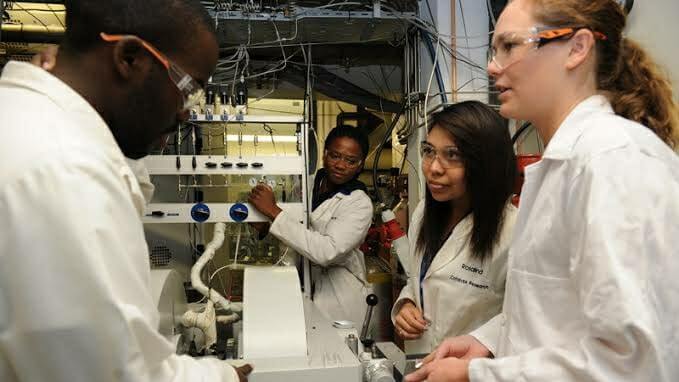M.Sc. Organic Chemistry is a P.G. (Post Graduate) degree programme that involves the study of structure, properties, composition and reactions of organic compounds. It is the sub-discipline course of Chemistry. Other sub-disciplines are Inorganic Chemistry, Physical Chemistry, and Analytical Chemistry
An individual Student who is enrolled in the programme M.Sc. Organic Chemistry degree course studies about the organic compound’s structure, properties, composition, reactions, and preparation of carbon-containing compounds, which include compounds with any number of other elements, including hydrogen as most compounds contain at least one carbon–hydrogen bond, nitrogen, oxygen, sulphur, halogens, phosphorus and silicon along with hydrocarbons in detail.
There is a huge demand of M.Sc. Organic Chemistry scholars.
Organic chemistry jobs can be found in diverse sectors from rubber, plastics, fuel, pharmaceutical, cosmetics and detergent, coatings, dyestuff, and agri-chemical industries to health care and research
State, and central governments also hire organic chemists in many departments
According to government surveys overall employment of Organic Chemists and is projected to grow 5 per cent from 2019 to 2029, faster than the average for all occupations. Employment of chemists is projected to grow 14 per cent.
Education Required: A bachelor’s degree (sometimes B.Sc. Honours) in chemistry or a related field is needed for entry-level M.Sc. (organic chemistry). Research jobs require a master’s degree or a Ph.D. and also may require significant levels of work experience. Organic chemists with a Ph.D. and postdoctoral experience typically lead basic- or applied-research and development teams. Combined programs (integrated PhD), which offer an accelerated bachelor’s and master’s degree in chemistry, also are available.
Click below to get all Latest jobs in chemistry!




